
As a graduate student, you're no stranger to the demands of your academic journey. From intense research projects to writing papers and attending seminars, you need a reliable and powerful machine to keep up with your workload. That's why finding the best laptop for grad school is crucial to your success. In this guide, we'll dive into the unique requirements that graduate students have when it comes to choosing a laptop, making it easier for you to find the perfect device for your needs.
Graduate students often work with large datasets, perform complex calculations, and run demanding software. Therefore, the best laptop for grad school should have a powerful processor, ample RAM, and a fast SSD to ensure smooth multitasking and quick data access. Additionally, a laptop with a comfortable keyboard, long battery life, and a high-quality display is essential for those long hours of typing and reading.
Over the years, I've developed a keen eye for laptop selection by reviewing an extensive laptop spreadsheet containing recent releases, comparing specs, and analyzing professional and user-generated reviews. By narrowing down the top laptops based on graduate student-specific requirements and price ranges, I'm confident that this guide will help you find the ideal laptop for your academic pursuits. As someone who's been in your shoes, I understand the importance of having a reliable laptop that can handle the rigors of grad school. Together, we'll explore the best options available to ensure you're well-equipped for the challenges ahead.
Power up your Grad School Journey: Choosing the Right Processor

When it comes to selecting the right laptop processor for grad school, there are a few factors to consider. Firstly, the laptop market is constantly evolving, with new processors being released all the time. For example, Apple has introduced its M1, M2, M2 Pro, and M2 Max processors, which offer excellent single-core performance and battery life. AMD has also captured a significant share of the laptop CPU market, with its latest 7th-generation Ryzen processors being a good option for those in need of a long-lasting battery life.
If you're looking for a Windows laptop, you'll need to choose between Intel and AMD chips. For most grad students, we recommend going for an AMD Ryzen 5 or 7, as they offer great value for money.
It's also essential to consider the type of work you'll be doing on your laptop. If you're running scientific applications, you'll need a fast processor. Still, you'll also need plenty of RAM to ensure smooth performance when working with large datasets. For most students, 16 GB of RAM should suffice, but if you're working with large datasets or using multithreaded applications, we recommend opting for 32 GB.
When comparing CPUs, we suggest using Cinebench R20 scores as they're most relevant to scientific research. If you're on a tight budget, be prepared to make some sacrifices in terms of performance and battery life. But if you can afford it, we recommend investing in a mid-range or high-end ultrabook that offers excellent performance and battery life.
Here are our recommendations for different budgets:
| Processor | Price Range |
|---|---|
| Minimum: i3-1115G4 | $350-$450 |
| Recommended: i5-1135G7 | $600-$800 |
| High-end: i7-11370H | $1,000-$1,500 |
Ultimately, the right processor for your grad school laptop will depend on your specific needs and budget. But with our recommendations, you should be able to find a processor that offers great performance and value for money.
Powering Your Grad School Dreams: Graphics Card Essentials
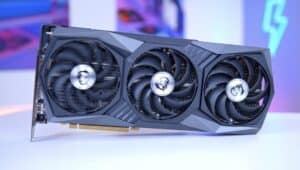
When it comes to choosing a graphics card for your grad school laptop, there are a few key things to consider. While a dedicated GPU may not be necessary for most students, it can be helpful for tasks such as machine learning models or gaming.
Firstly, it's important to note that the laptop GPU market has seen some changes in recent years. Nvidia continues to dominate the market, but the gap between power-limited notebook graphics and desktop graphics cards has widened. Additionally, Nvidia has discontinued the Max-Q label for its RTX graphics cards, resulting in a wide variance in graphics performance even in laptops with the same GPU chipset.
If you do decide to go for a laptop with a dedicated GPU, you'll need to decide whether you want to prioritize performance or battery life. Nvidia's RTX series offers the best possible performance, but these chips are only available in gaming laptops and require a more powerful CPU to reach their full potential. AMD's Radeon line offers more options for those seeking an ideal balance between performance and battery life.
It's also worth noting that some laptops come with a discrete GPU, while others rely on an integrated chip that can't deliver the same level of performance when gaming or training machine learning models. If you need a laptop with a fast graphics chip, make sure it has an Advanced version of Nvidia's Optimus technology (or AMD's equivalent).
To help you make a decision, here are our recommendations for different price ranges:
| GPU | Price Range | Recommended Use |
|---|---|---|
| GeForce GTX 1650 | Entry-level | Suitable for basic tasks and light gaming |
| GeForce RTX 3050 | Mid-range | Suitable for gaming and running machine learning models |
| GeForce RTX 2060 | High-end | Suitable for demanding tasks such as 3D rendering and advanced machine learning |
We recommend using 3DMark to compare different GPUs, but specific tests such as Deep Learning training time or Cinebench R23 single-threaded score may be necessary depending on your needs. Keep in mind that gaming laptops can be expensive due to high-quality components such as IPS displays, RGB lighting effects, and other flashy aesthetics. Ultimately, it's important to choose a GPU that meets your specific needs and budget.
Boost your Productivity with Ample RAM
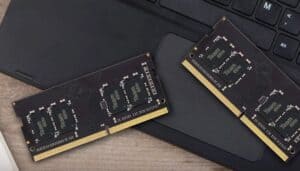
As a grad student, you'll likely be running multiple programs and applications simultaneously, including virtual machines, programming software, and databases. For this reason, RAM is a crucial component to consider when choosing a laptop.
A minimum of 16 GB of RAM is recommended for most grad students, while 32 GB is recommended if you're working with large datasets or running multiple virtual machines. Having enough memory will allow you to load all your applications at once without any lag or constant reloading.
When it comes to RAM types, the vast majority of laptops come with DDR4 memory, which is perfectly fine for most users. However, if you're looking for the best possible performance, you should consider laptops with DDR5 memory modules. While still rare in the laptop market, they're becoming more popular and offer faster data transfer speeds.
Here's a breakdown of what you can expect in terms of RAM at various price points:
| Price Range | Median RAM Configuration |
|---|---|
| Under $500 | 4-8 GB |
| $500-$1,000 | 8-16 GB |
| $1,000-$1,500 | 16-32 GB |
| $1,500 and above | 32 GB or more |
It's important to also consider the upgradability of your laptop when it comes to RAM. Some laptops have limited M.2 slots and RAM configurations, which can limit your ability to upgrade in the future. If you're looking for a laptop that will last you through your entire grad school career, make sure to choose one with the ability to upgrade its RAM.
In summary, for grad school laptops, a minimum of 16 GB of RAM is recommended, with 32 GB being necessary for more intensive tasks. DDR5 memory modules offer better performance but are still rare in laptops. Consider your budget and laptop's upgradability when deciding on the amount of RAM you need.
Grad school laptop buying dilemmas: solved
Q: What is the best laptop for grad school?
There is no single "best" laptop for grad school, as it will depend on individual needs and preferences. However, some top options for different price points include the ASUS Zenbook for $640, the HP Victus 15t for $900, the Lenovo Legion 5 Pro for all budgets at $1,350, the GIGABYTE AORUS 15 XE4 for all budgets at $1,600, and the Dell XPS 17 9720 for $5,600.
Which laptop is best for research and writing?
For research and writing, you will want a laptop with a good keyboard and a clear, bright display. We recommend the ASUS Zenbook for $640, the HP Victus 15t for $900, the Lenovo Legion 5 Pro for all budgets at $1,350, the GIGABYTE AORUS 15 XE4 for all budgets at $1,600, and the Dell XPS 17 9720 for $5,600.
What laptop specs are needed for grad school?
The minimum requirements for a grad school laptop include a graphics card of at least GeForce GTX 1650, processor of at least i3-1115G4, and memory of at least 8 GB. For a better experience, we recommend a graphics card of at least GeForce RTX 3050, processor of at least i5-1135G7, and memory of at least 16 GB.
Can a MacBook Air handle grad school?
Yes, a MacBook Air can handle grad school tasks such as word processing and basic research. However, it may struggle with more demanding software and tasks such as running virtual machines or video editing.
What is the ideal battery life for a grad school laptop?
A good battery life for a grad school laptop should be at least 8 hours, but ideally closer to 10 or more. This will ensure that you can work for a full day without having to constantly search for a charging outlet.
Is it better to use a laptop or a tablet for grad school?
While a tablet can be useful for note-taking and reading, a laptop is generally more versatile and better suited for grad school tasks such as research, writing, and data analysis. We recommend using a laptop for grad school.
How much RAM is required for grad school laptop?
The minimum RAM required for a grad school laptop is 8 GB. However, for a better experience, we recommend at least 16 GB.
Should I get a touchscreen laptop for grad school?
While a touchscreen laptop can be useful for note-taking and drawing, it is not necessary for most grad school tasks. However, if you plan on using the laptop for creative work, a touchscreen can be a helpful feature.
How to choose a laptop for grad school?
When choosing a laptop for grad school, consider factors such as performance, battery life, display quality, keyboard comfort, and portability. Look for laptops with a graphics card of at least GeForce GTX 1650, processor of at least i3-1115G4, and memory of at least 8 GB, with 16 GB or more being ideal.
Is it necessary to have a dedicated graphics card for grad school?
While a dedicated graphics card is not strictly necessary for most grad school tasks, it can be useful for software that requires heavy graphics processing, such as 3D modeling or video editing. We recommend a graphics card of at least GeForce GTX 1650 or higher for best performance.
5 Best Laptops for grad school
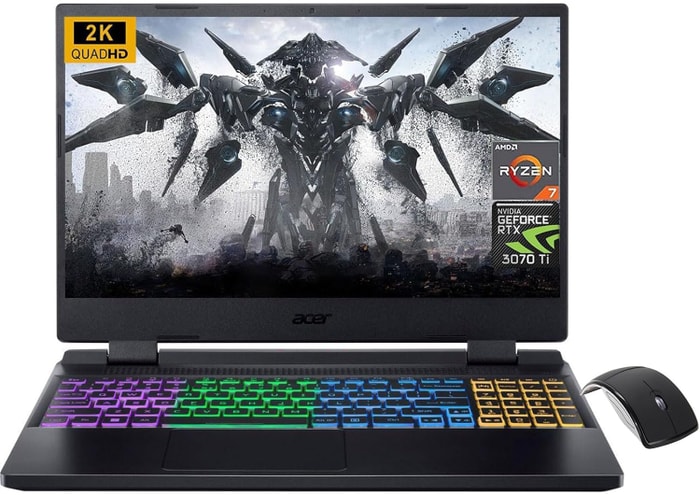 $680
$6801.acer Nitro 5
grad school laptop- Solid processor (Ryzen 7 6800H)
- Solid graphics card (RTX 3070 Ti)
- Solid memory amount (32GB)
- One of most affordable laptops with an AMD Ryzen 7 processor
- No IPS Panel (worse contrast)
Alternatives
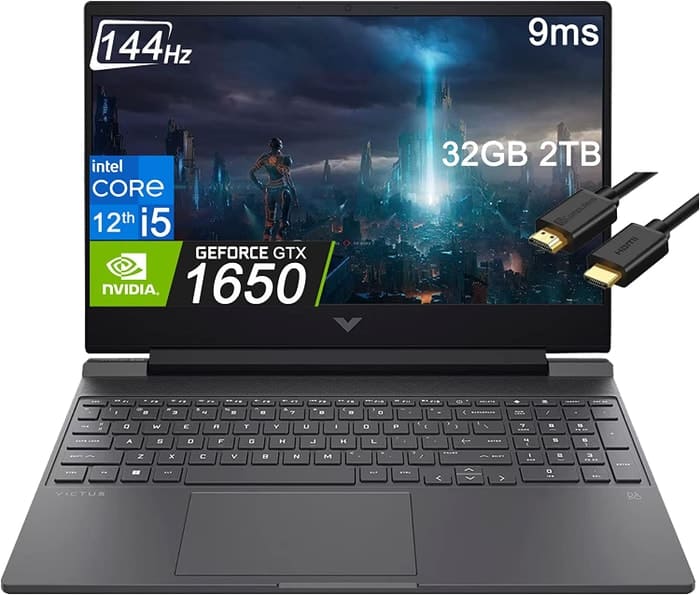
HP Victus 15
- Excellent price
- Good gaming performance
- Bad battery life
- Plain design

2.ASUS TUF Dash F15
Affordable and powerful, the ASUS TUF Dash F15 is a solid choice for grad school with its lightweight design, good performance, and competitive price.- Lightweight and well built
- Good inputs and IO
- Multiple screen options to choose from
- Improved power and performance
- Quirks affecting everyday ergonomics
- Most ports squeezed together on the left edge
- FHD 144Hz screen option should be avoided
Summary
The ASUS TUF Dash F15 is a budget-friendly option for grad school with its improved power and performance. It offers a lightweight and well-built design, good inputs and IO, and multiple screen options to choose from. However, there are still some quirks affecting everyday ergonomics and the FHD 144Hz screen option should be avoided.
Reviews
Alternatives
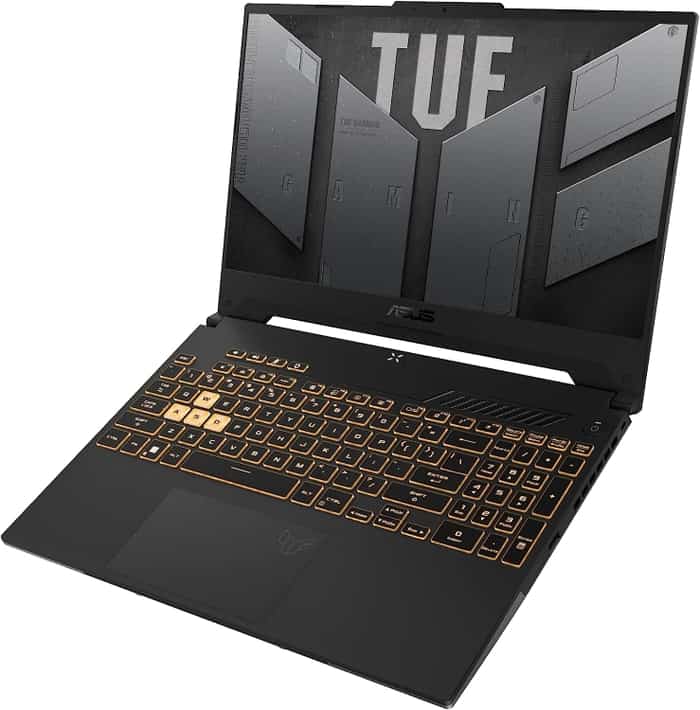
ASUS TUF F15 FX507VU-ES53
- Superb 1080p gaming performance
- Strong productivity capabilities
- Poor webcam, touchpad, and speakers
- Some games appear washed out on display
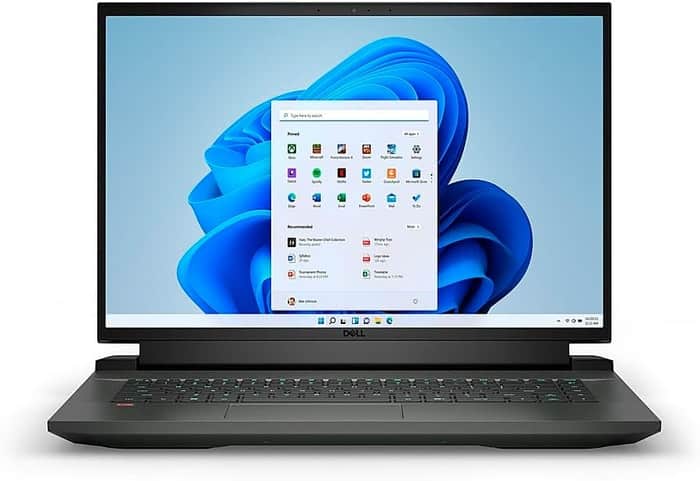
3.Dell G16
The Dell G16 offers strong gaming and productivity performance at an affordable price, but falls short in display quality and battery life.- Relatively affordable
- Strong performance for gaming and productivity
- Good cooling system
- Fast refresh rate options with G-Sync
- Heavier and thicker than competitors
- Thunderbolt 4 only available on more expensive models
- No SD card reader
- Below-average battery life
Summary
The Dell G16 impresses with its gaming and productivity capabilities, thanks to the RTX 3060 and robust software support. However, it suffers from a lackluster display, below-average battery life, and weaker speakers. Overall, it's a solid option for budget-conscious users seeking powerful performance, but not ideal for those prioritizing display quality or long battery life.
Reviews
Alternatives
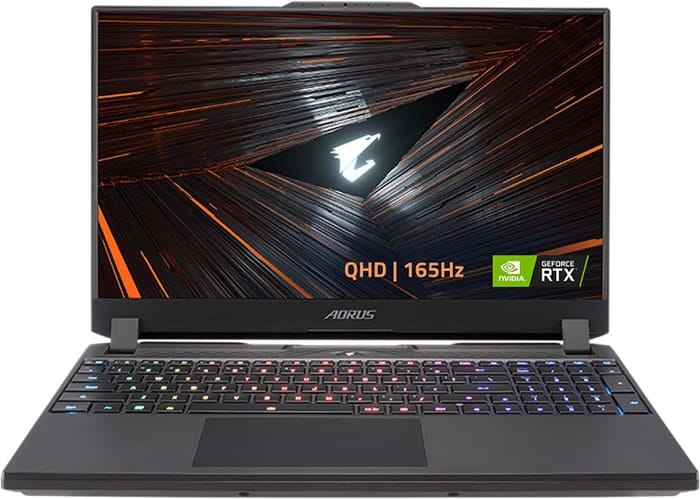
GIGABYTE AORUS 15 XE5
- Highly responsive 165Hz panel
- Impressive system performance
- High power usage at idle and low load
- No card reader
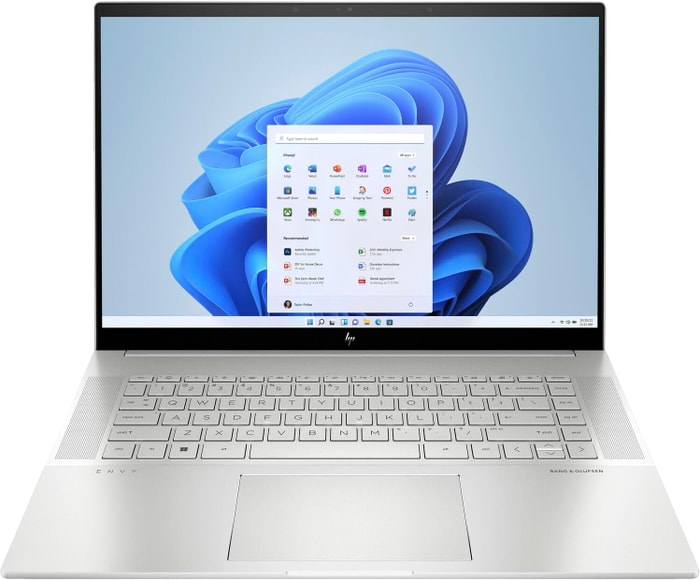 $1,800
$1,8004.HP Envy 16
The HP Envy 16 offers high-end features and power for creative apps and light gaming, but its weight and bulkiness may be a drawback.- Plenty of CPU and GPU power
- New 120Hz screen refresh rate
- High-res webcam
- Sleek design
- Merely adequate base screen
- Optional OLED has fewer pixels than before
- Bulky and heavy
Summary
With its powerful CPU and GPU, high-refresh rate display, and high-res webcam, the HP Envy 16 is a compelling option for those in grad school. However, its weight and bulkiness might not make it the most portable choice.
Reviews
Alternatives

ASUS ROG Strix G15
- High performance CPU and GPU
- Good workmanship and design
- Skimpy connectivity
- Potential coil whine in certain situations

5.Lenovo Legion Pro 7i 16
Lenovo Legion Pro 7i 16: A powerful gaming laptop with sleek design and impressive performance, offered at a reasonable price.- Strong overall performance
- Big, bright, and fast display
- Per-key RGB lighting
- Some flex to keyboard deck
- Poor battery life
Summary
The Lenovo Legion Pro 7i 16 is a high-end gaming laptop that delivers impressive performance without sacrificing style. With its powerful processor and graphics card, it offers great value compared to its competitors. However, it does have some limitations in terms of GPU performance and battery life.
Alternatives

HP Omen 17
- QHD display with 165 Hz
- Advanced Optimus technology
- Slightly below-average performance for a RTX 4080
- High noise level
Table of the Best Laptops for grad school
| Laptop | Price (approx) |
| acer Nitro 5 | $680 |
| ASUS TUF Dash F15 | $1,160 |
| Dell G16 | $1,510 |
| HP Envy 16 | $1,800 |
| Lenovo Legion Pro 7i 16 | $3,390 |





